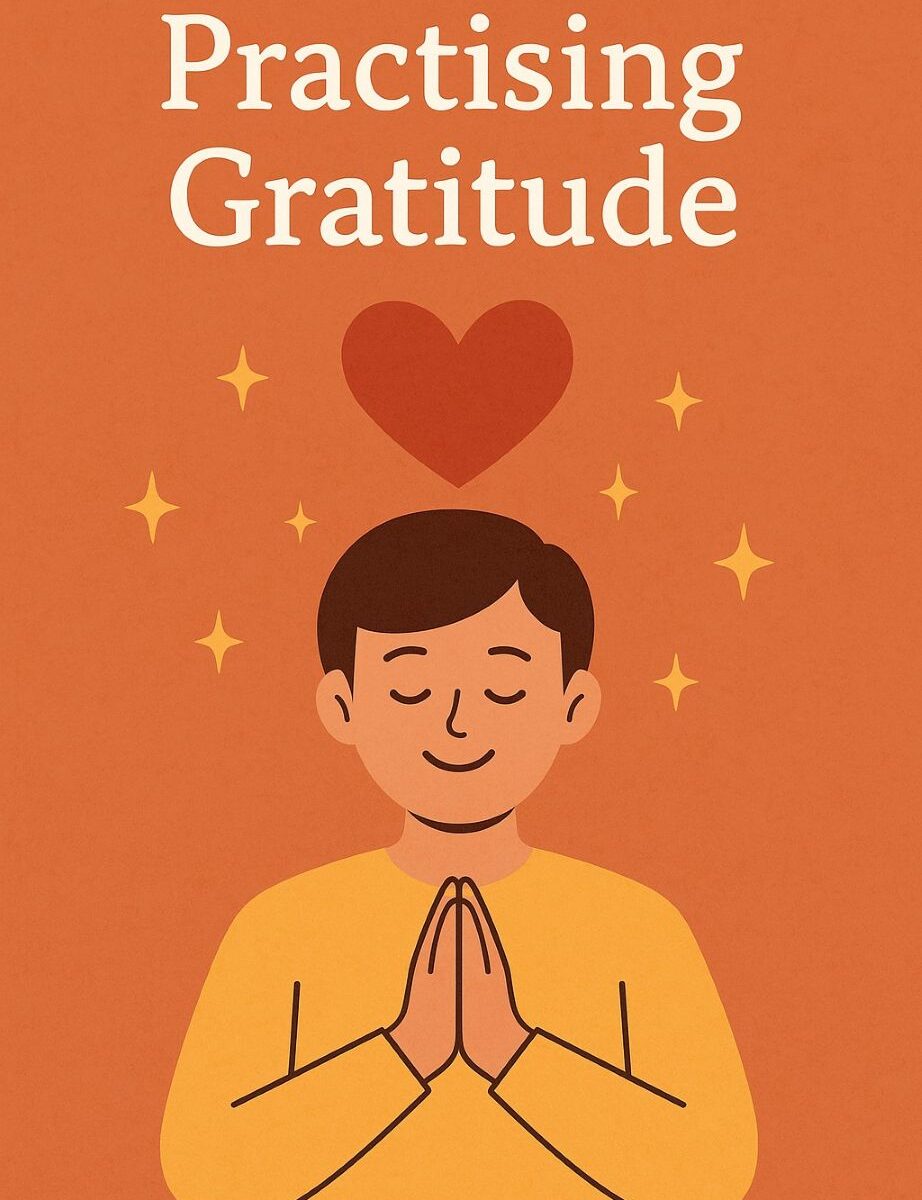Practising gratitude is the magic sauce. The more I read about all the different types of self-help and popular psychology, the more I see that Gratitude is the fix-all. Do you want to be happy? Then be grateful for what you have now and happiness will come.
What is Gratitude?
Gratitude is a sense of appreciation for someone or something, for what they have done for you. We should all be grateful for the things people do for us, but the sense of thankfulness I’m talking about is the state of being, whereby we appreciate everything all of the time.
This constant state of gratitude is surely impossible to maintain, when external disappointments occur. Nevertheless, we should strive to reach this state anyway; any improvement in our state of gratitude can only be a good thing.
Practising gratitude with a simple thank you.
Entry level gratitude is saying a simple thank you to people. From appreciation of good deeds done, to gifts received, we are all brought up to say ‘thanks, I appreciate that’.
What about when people are just doing their job. The server brings the food and the cashier hands over the goods we’ve just bought. The habit of thanking them is easy and we surely all do it?
How do you react when people offer you a compliment? Do you deprecate it to appear humble? “Oh, this old thing? I’ve had it for years.” Why not offer sincere thanks instead. The effect on the complimentor will be good, but it will be profound to you.
Why is being grateful Important?
Gratitude is an important state to strive for, even if we don’t achieve it all the time. What we tend to focus on, expands in our awareness. This phenomenon is well known. It means that if we look for things to be grateful for, we will see more things to be grateful for. The opposite is also true.
“Learn to desire what you already have, and you will have all you need.”
There seems to be magic at work here. For some reason, if I focus on what’s good in my life, I feel better. The better I feel, the more things there are to be grateful for. It’s a virtuous cycle.
Money and gratitude
When I’m grateful for the amount of money I have, I seem to receive more. Yes, I know it’s not really magic and is probably because I am more aware of the income, because I’m grateful for it. It could also be that the more grateful I am, the more likely I am to do the things that are rewarded with money. I’m thinking of making more sales, getting more customers, and doing a better job. This is the real Law of Attraction in operation.
How to become grateful
If you suspect that you are not as grateful as you could be and you are open to some tips on becoming grateful, here are a few techniques to help you.
3 things to be grateful for
Every morning as part of my daily routine, after I meditate, I will write out at least 3 things to be grateful for. These could be things that happened the day before. They could be little things like the fact that the Wi-Fi works or they could be things we usually take for granted, such as – I have my eyesight.
Imagine you lost it
Another technique is to practise going though your day and imagining that you lost the things you have. What if I lost my house? What would that feel like? This will automatically make you more appreciative of what you do have.
You can also do this with people. Imagine what life would be like without that person in it. Once you’ve done that you will have a greater appreciation of them.
Gratitude list
The gratitude list is a tip I got from Lynne Grabhorn in her book “Excuse me, your life is waiting”. She recommends writing out a list of 20 things you are grateful for and carrying this list with you.
When you are going about your day and a negative thought pops up, simply look at one of the items on the list and focus on this instead. This doesn’t mean you will naively ignore the things that need attending to, but you will be in a better frame of mind, to deal with it.
Gratitude book
If you are struggling to come up with a list of things you are grateful for, take a small notebook around with you. Every time something good happens or you see something agreeable, write it down in the gratitude book. These items could be things like:
- The birdsong was pleasant.
- There was no queue in the coffee shop.
- I found a parking space easily.
What’s good about this?
As you become more thankful for the mundane things in life, you will still be confronted with things that are negative. Plans might not work out, failure occurs, someone is rude. The negative thing is still negative, you can’t control external events. You can however control your thoughts.
Practise asking yourself ‘what’s good about this’? There may not be much, but there will be something. Not only will this change your outlook, but it will equip you with a better attitude to address what happened. For instance, what did you learn about this failure that will make you better next time?
In the end, things are as they are and there’s not much you can do about it. You can only change yourself. It’s all ok. Accept it, be grateful.

